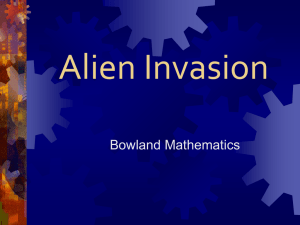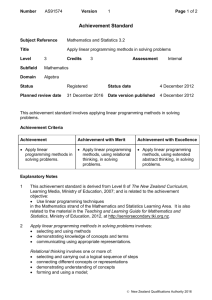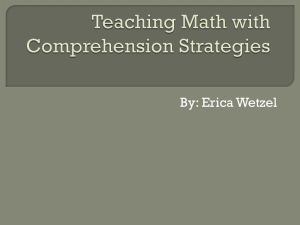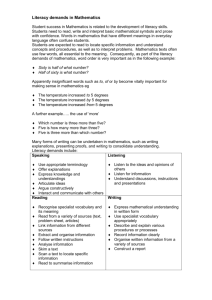Junior College Section
advertisement
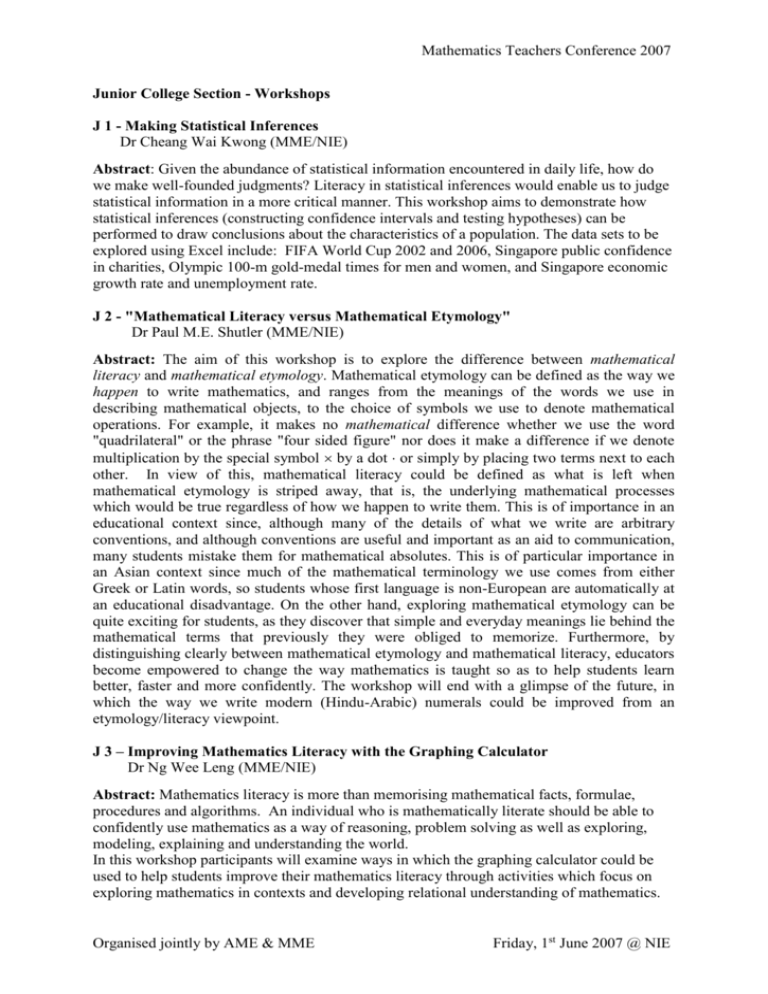
Mathematics Teachers Conference 2007 Junior College Section - Workshops J 1 - Making Statistical Inferences Dr Cheang Wai Kwong (MME/NIE) Abstract: Given the abundance of statistical information encountered in daily life, how do we make well-founded judgments? Literacy in statistical inferences would enable us to judge statistical information in a more critical manner. This workshop aims to demonstrate how statistical inferences (constructing confidence intervals and testing hypotheses) can be performed to draw conclusions about the characteristics of a population. The data sets to be explored using Excel include: FIFA World Cup 2002 and 2006, Singapore public confidence in charities, Olympic 100-m gold-medal times for men and women, and Singapore economic growth rate and unemployment rate. J 2 - "Mathematical Literacy versus Mathematical Etymology" Dr Paul M.E. Shutler (MME/NIE) Abstract: The aim of this workshop is to explore the difference between mathematical literacy and mathematical etymology. Mathematical etymology can be defined as the way we happen to write mathematics, and ranges from the meanings of the words we use in describing mathematical objects, to the choice of symbols we use to denote mathematical operations. For example, it makes no mathematical difference whether we use the word "quadrilateral" or the phrase "four sided figure" nor does it make a difference if we denote multiplication by the special symbol by a dot or simply by placing two terms next to each other. In view of this, mathematical literacy could be defined as what is left when mathematical etymology is striped away, that is, the underlying mathematical processes which would be true regardless of how we happen to write them. This is of importance in an educational context since, although many of the details of what we write are arbitrary conventions, and although conventions are useful and important as an aid to communication, many students mistake them for mathematical absolutes. This is of particular importance in an Asian context since much of the mathematical terminology we use comes from either Greek or Latin words, so students whose first language is non-European are automatically at an educational disadvantage. On the other hand, exploring mathematical etymology can be quite exciting for students, as they discover that simple and everyday meanings lie behind the mathematical terms that previously they were obliged to memorize. Furthermore, by distinguishing clearly between mathematical etymology and mathematical literacy, educators become empowered to change the way mathematics is taught so as to help students learn better, faster and more confidently. The workshop will end with a glimpse of the future, in which the way we write modern (Hindu-Arabic) numerals could be improved from an etymology/literacy viewpoint. J 3 – Improving Mathematics Literacy with the Graphing Calculator Dr Ng Wee Leng (MME/NIE) Abstract: Mathematics literacy is more than memorising mathematical facts, formulae, procedures and algorithms. An individual who is mathematically literate should be able to confidently use mathematics as a way of reasoning, problem solving as well as exploring, modeling, explaining and understanding the world. In this workshop participants will examine ways in which the graphing calculator could be used to help students improve their mathematics literacy through activities which focus on exploring mathematics in contexts and developing relational understanding of mathematics. Organised jointly by AME & MME Friday, 1st June 2007 @ NIE


